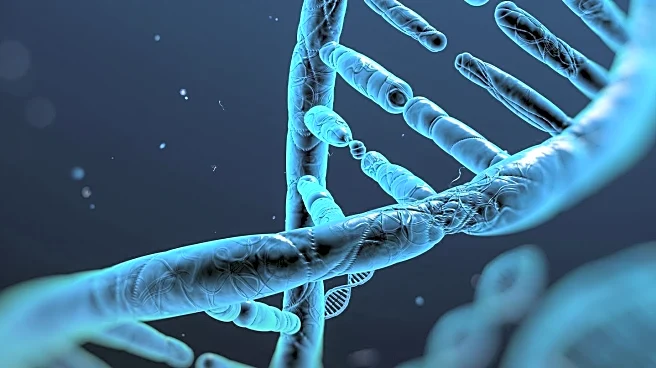What is the story about?
What's Happening?
Researchers have developed a blood test capable of determining the biological age of 11 different organs and systems, potentially identifying disease risks. The test, developed by a team including Raghav Sehgal at Yale University, uses DNA methylation patterns to assess the aging status of organs such as the heart, brain, and liver, as well as systems like the immune and metabolic systems. This approach aims to provide personalized health insights, allowing for tailored lifestyle or treatment recommendations based on an individual's unique biological profile.
Why It's Important?
This advancement in epigenetic testing represents a significant step forward in personalized medicine, offering a more nuanced understanding of how different parts of the body age. By identifying which organs or systems are aging faster, individuals can potentially take targeted actions to mitigate health risks. This could lead to more effective preventative healthcare strategies and influence how aging-related diseases are managed. The test's ability to provide a comprehensive view of biological aging may also drive further research into the mechanisms of aging and disease prevention.
Beyond the Headlines
While the test offers promising insights, it is not intended for diagnostic purposes but rather for risk assessment. The development of such tests highlights the complexity of aging, emphasizing the need for a holistic view of the body as an integrated system. Future research may focus on refining these tests to provide even more accurate assessments, potentially incorporating additional biological markers to capture the full complexity of the aging process.

















